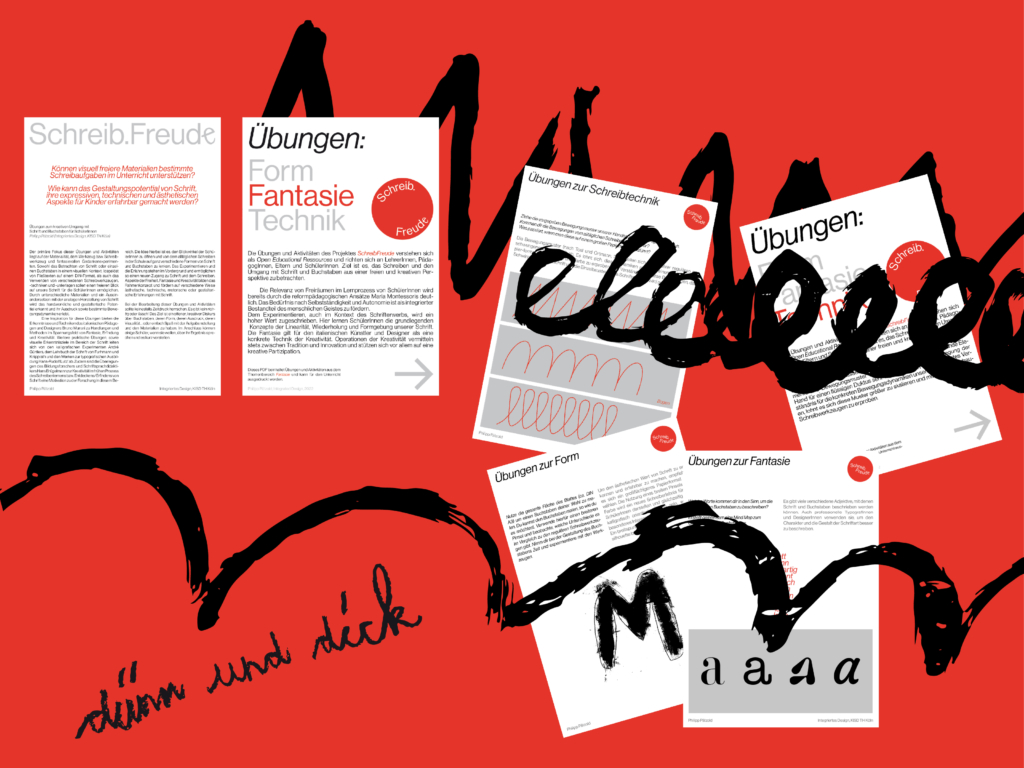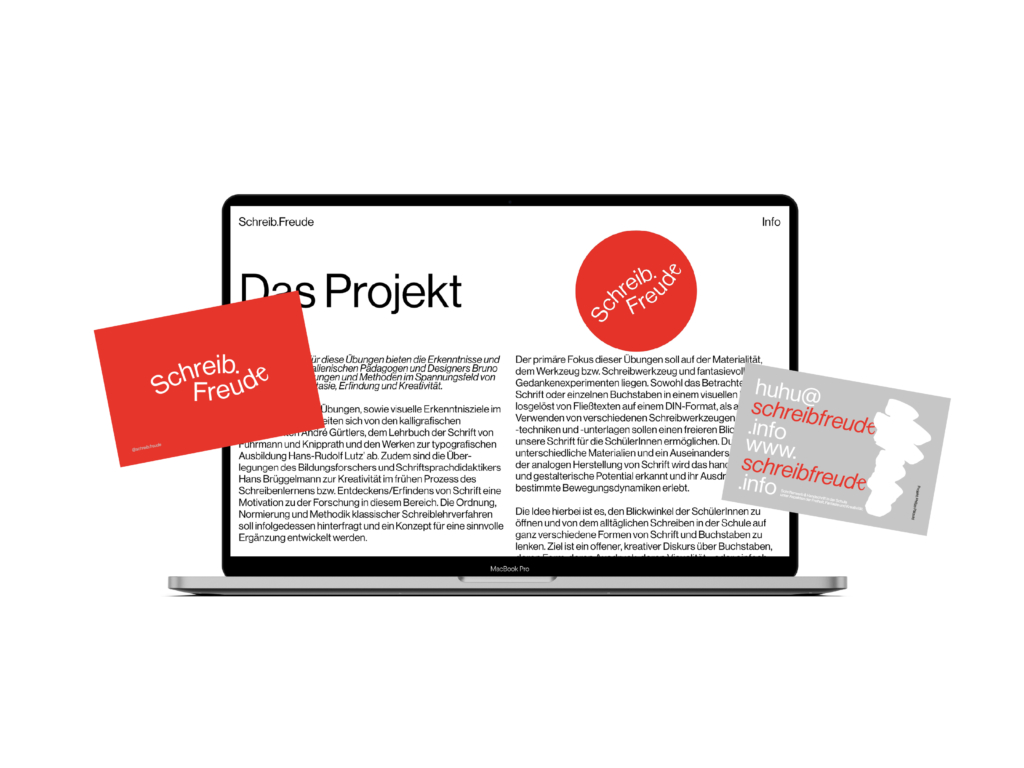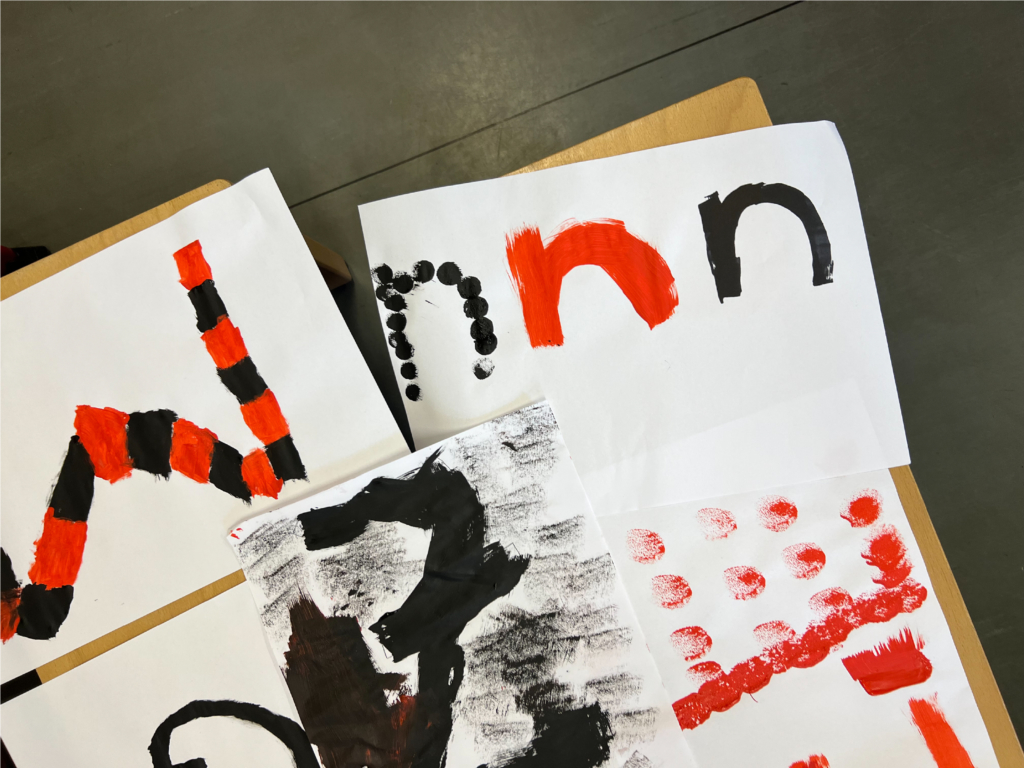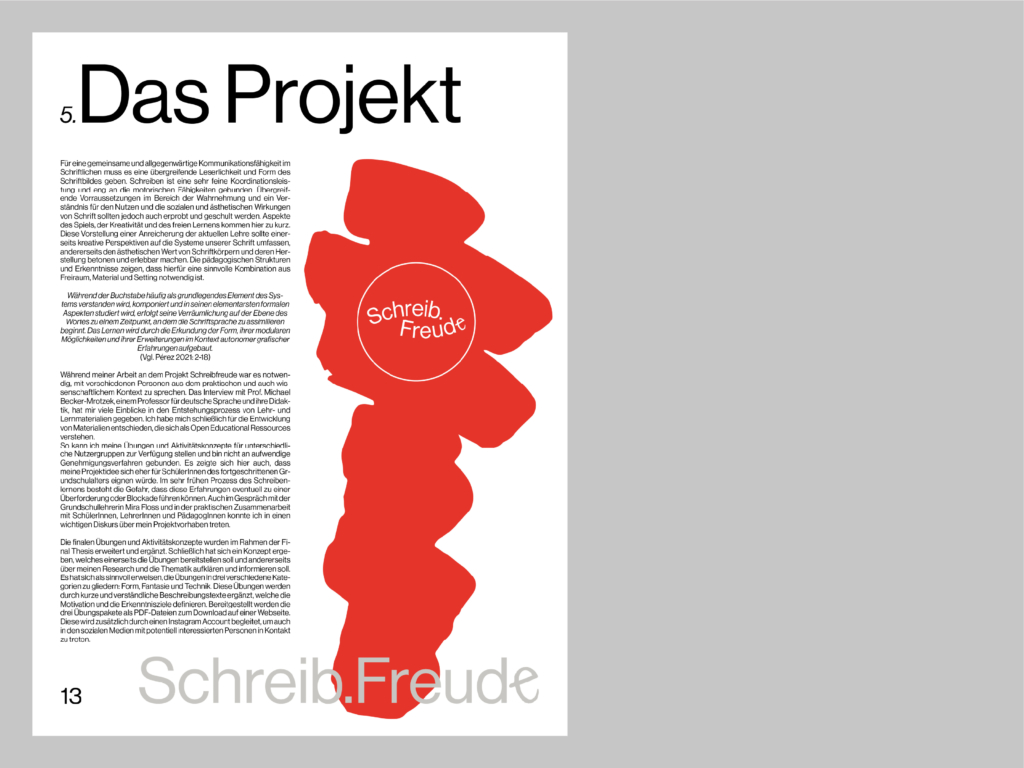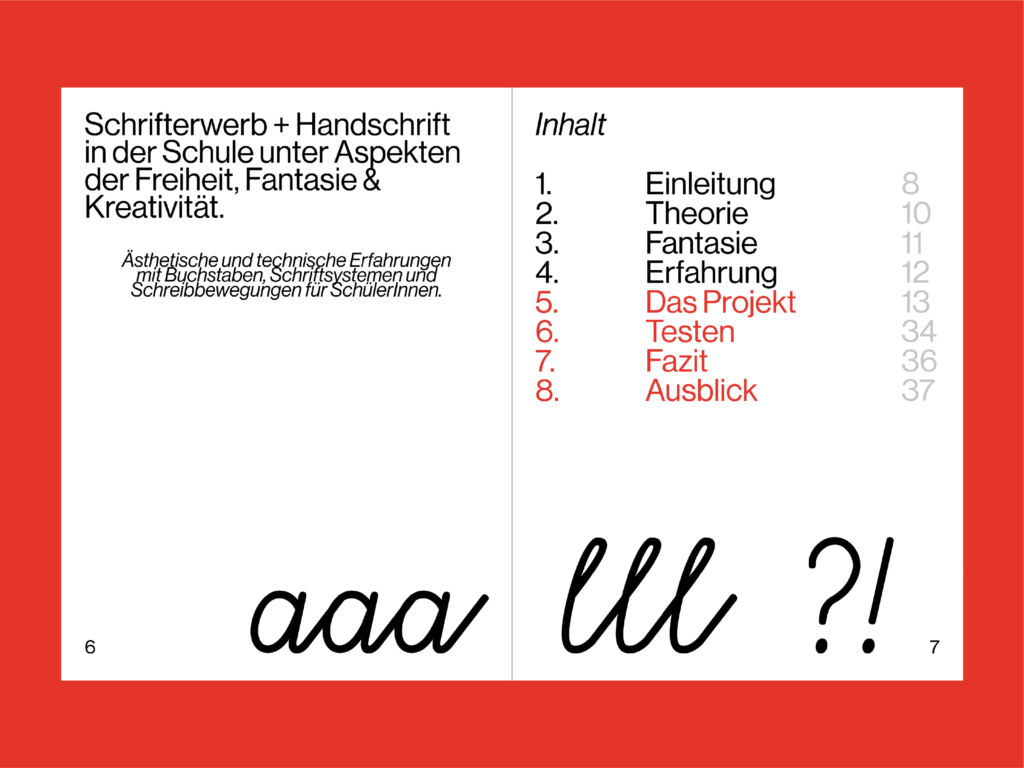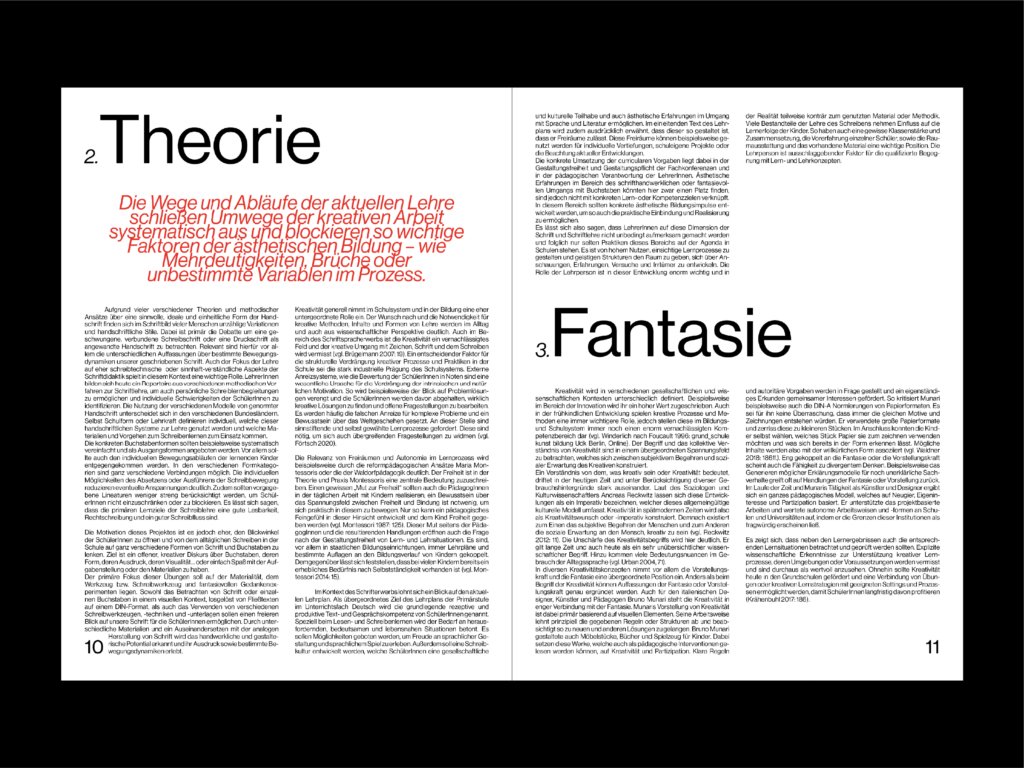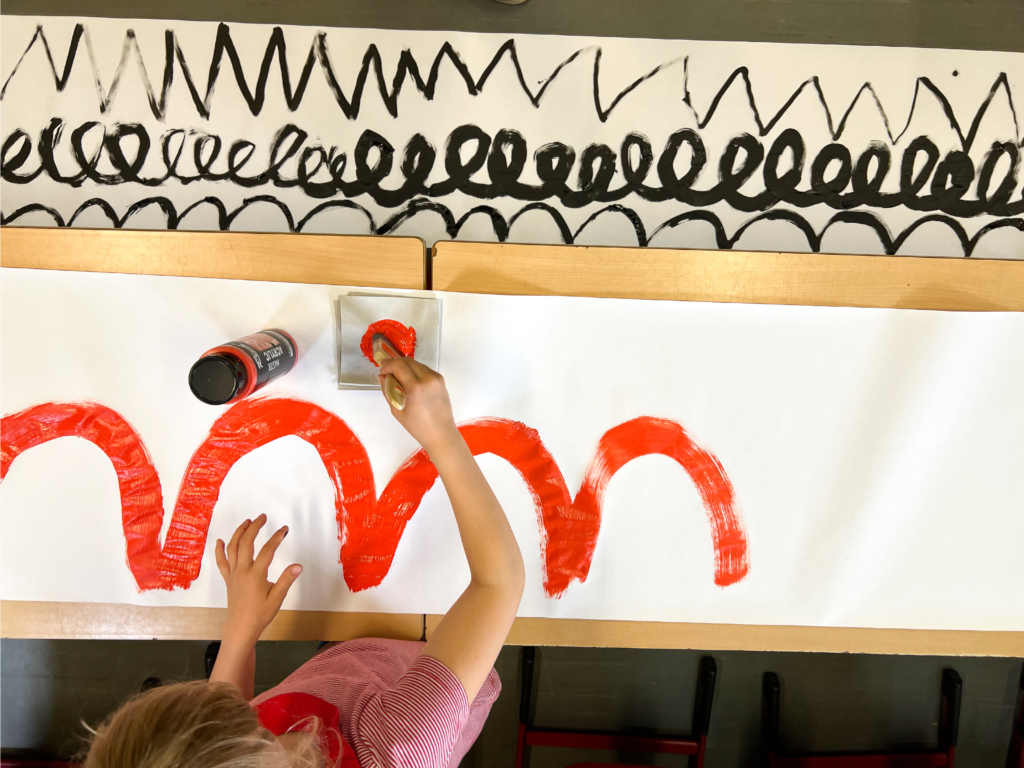The acquisition of writing in primary school usually leaves little space for the creative discovery of our writing. KISD student Philipp Pätzold wanted to change this by developing a new method in his bachelor's thesis that allows children to enjoy the acquisition of writing. For this, he has been nominated for the Cologne Design Prize. Below he gives us a brief introduction to his project.
The curriculum of German elementary schools aims to strengthen the joy and fun of writing and also to enable aesthetic experiences in this area. In this project, I have developed exercises for elementary school students that refer to various aspects of imagination, form, or technique. The primary focus of these exercises and activities is on materiality, writing tools and imaginative thought experiments. Discussions with teachers, pedagogues and didacticians show that activities of this kind are hardly used in practice and that too little value is attributed to them. The idea is therefore to open up the students’ perspective and to steer them away from everyday writing in school to very different forms of writing and letters. Experimentation and experience are in the focus and enable a new approach to typography, our writing system and the writing process.
During my intermediate examination I already dealt with visually expressive handwriting and its aesthetics in visual communication. Even then, I was fascinated by the different social and cultural structures that are connected to this. I also wanted to deal with handwriting in the final thesis and examine it in the context of the educational system in Germany. The acquisition of handwriting in elementary school is often done by meticulously practicing letters and letter forms. This leaves little room for a creative experience or discovery of our handwriting. The exercises and activity concepts of the Schreib.Freude project are based on new visions of aesthetic education. Typographic and calligraphic experiments. I included methods in the field of fantasy and also visually expressive ways without blocking the necessary autonomy in the learning process.
